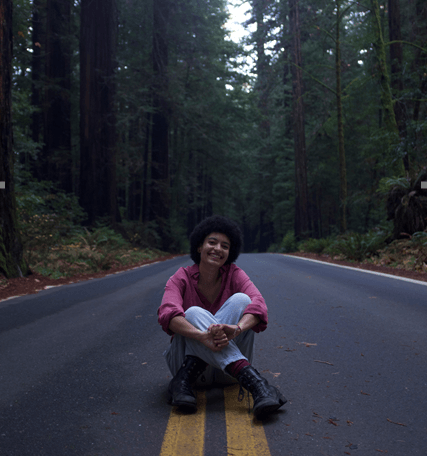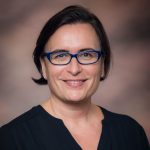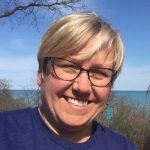Campbell Simmons
Originally from San Francisco, California (Ohlone Land), Campbell Simmons now lives and works in Philadelphia, Pennsylvania, on Lenape lands.
Campbell joined River Network in 2023. As the Resilient Communities and Policy Associate, Campbell supports organizations in the network to advance climate justice and holistic community resilience that incorporates environmental, social, and economic resilience.
Campbell graduated from Tufts University with a B.A. in Environmental Sustainability, Policy, and Equity. Before coming to River Network, Campbell worked at The Wilderness Society as their Equity Associate, building equity into their policies, practices, and programs. Outside of work Campbell is a dedicated birder and poet!
Which River Network value most speaks to you?
Balance speaks to me the most. Balancing conservation needs and goals within the context of human needs and health is central to effective and equitable conservation. Part of what drew me to River Network was the emphasis that human health and ecological health went hand in hand, and that the key to conservation is to build healthy relationships between rivers and people. Too often do conservation groups ignore the needs of the people living in the places they seek to conserve. Balance reminds us to approach conservation with a human need-centered approach.
What was your earliest memory around water?
 Growing up in San Francisco, I was always surrounded by water. As a child my family often went to Ocean Beach that lines the western coast of San Francisco. It was always windy and cold, but absolutely magnificent. I remember being bundled up in jackets and scarves and still feeling frozen to the bone. I still love to go to Ocean Beach when I visit San Francisco and gawk at the largest body of water on the planet.
Growing up in San Francisco, I was always surrounded by water. As a child my family often went to Ocean Beach that lines the western coast of San Francisco. It was always windy and cold, but absolutely magnificent. I remember being bundled up in jackets and scarves and still feeling frozen to the bone. I still love to go to Ocean Beach when I visit San Francisco and gawk at the largest body of water on the planet.
How do you think the conservation community can make the biggest impact?
The conservation space needs to approach conservation with a human and community focused lens, while also centering and following the lead of those most impacted by environmental degradation who are overwhelmingly Black, Indigenous, and people of color. The people closest to an issue are often the people with the best perspective on how to fix it, while also caring for themselves. We can’t discount the importance of lived experience with environmental issues, Indigenous ecological knowledge, and the grassroots. We need to be pouring resources into these communities and following their lead to solve environmental issues from wholistic perspectives.
How do you recharge outside of work?
Grabbing my camera and heading to the John Heinz Wildlife Refuge in Philly to take pictures of birds!







